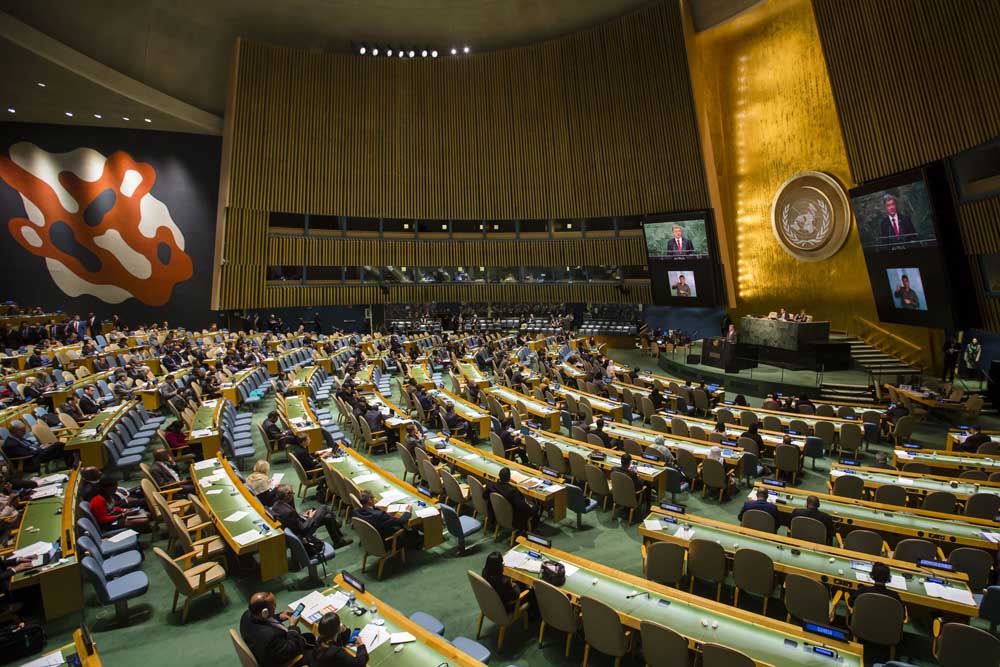Commentary: CON: US withdrawal from UN’s Human Rights Council send wrong message to world
Published 12:00 am Monday, July 9, 2018

- (123RF)
COLUMBUS, Ohio — The Trump administration shot itself in the foot by withdrawing from the Human Rights Council of the United Nations. Our withdrawal sends a signal that the United States views human rights in the world as a low priority matter.
Our absence from the council will make it harder for the U.S. to pressure other governments into respecting human rights.
Even from a narrower perspective, the withdrawal harms the U.S. We criticize adversaries on human rights as one way of getting them to do what we want.
The Human Rights Council is an ideal forum for doing so. It has held repeated sessions, for example, on Syria, leveling criticism against Syria’s government. It has been unsparing in its criticism of the Democratic People’s Republic of Korea.
The Human Rights Council is made up of 47 states that are members of the United Nations. Its function is to monitor human rights observance by all 193 U.N. member states. States are elected by the U.N. General Assembly for three-year terms. The current U.S. term would have run to Dec. 31, 2019.
Until the withdrawal, the United States was a member because the Obama administration put the U.S. forward in an October 2016 election, so the United States was a member when Trump took office.
The Trump administration has used the U.S. seat on the council to rail against it for resolutions critical of Israel’s practices in the Palestinian territories that Israel occupies.
The Human Rights Council keeps Israel as a permanent agenda item, a fact Trump has denounced. But military occupation presents a unique situation for human rights protection.
When an army, in this case Israel’s, occupies foreign territory, the risk of abuses is high. In the case of this particular occupation, Israel has shown scant regard for the rights of the population.
The Human Rights Council has focused on Israel’s construction of civilian settlements in Palestine’s territory, a major violation of the rights of an occupied population.
Trump’s criticism of the council is one aspect of his broader catering to Israel. He has given Israel a pass on its rights violations. He has softened the U.S. stance on Israel’s construction of settlements. He has refused to criticize Israel for the recent fatal shootings of Palestinian protesters at Israel’s border with Gaza.
Trump’s obsession over the Human Rights Council’s criticism of Israel overlooks the broad work of the organization for human rights.
The Human Rights Council has representatives assigned to monitor violations by 12 different countries found to be major violators of rights.
The United States has a long history of involvement in U.N. human rights activity.
Our first human rights representative at the U.N. was a high-profile individual, Eleanor Roosevelt.
During the Obama years, the United States took the lead in promoting LGBT rights, against the reluctance of many governments.
Importantly, the withdrawal does not exempt the United States from accountability to the United Nations for our own observance of human rights. All U.N. member states must report every few years to the Human Rights Council and undergo grilling at its headquarters in Geneva on their shortcomings.
Trump’s decision to withdraw from the Human Rights Council is not irreversible. The United States can stand for election again. But our absence deprives the United States for now of the opportunity to shape the international human rights agenda and to press for better rights protection around the world.
— John B. Quigley is emeritus professor of law at Ohio State University.








